Understanding Forex Trading Accounts: A Comprehensive Guide
Forex trading relies heavily on the type of account you choose to trade with. Different accounts cater to different trading styles and volumes. As you navigate through the Forex market, you will come across a plethora of options for forex trading account Trading Brokers that offer various account types. In this article, we will explore the different Forex trading accounts available to traders, their features, pros and cons, and how to choose the right one for your needs.
What is a Forex Trading Account?
A Forex trading account is a platform where traders can buy and sell currencies in the Forex market. It functions similarly to a bank account but is specifically designed for trading purposes. Once you open a Forex trading account, you deposit funds which are then used to execute trades in the currency market. This account allows you to leverage your capital, trade various currency pairs, and access analytical tools that help in making informed trading decisions.
Types of Forex Trading Accounts
When it comes to choosing a Forex trading account, there are several types available, each designed to meet different trader needs. The most common types include:
1. Standard Account
The standard account is the most common type of Forex trading account. It typically requires a higher minimum deposit and allows traders to trade in larger volumes. Most brokers offer a leverage ranging from 1:100 to 1:500. This type of account is ideal for experienced traders who are comfortable with large trades and market fluctuations.
2. Mini Account
Mini accounts require a lower minimum deposit, usually around $100 – $500. They allow for smaller trade sizes, typically 10,000 units of currency, compared to the 100,000 units in a standard account. This account type is suitable for traders who are just starting out or those looking to trade in smaller increments while still having access to leverage.
3. Micro Account
Micro accounts require even lower minimum deposits, often ranging from $10 to $50. They allow traders to deal in micro-lots, or 1,000 units of currency. This is the best option for new traders who want to minimize risk and get a feel for the Forex market without large capital investment.

4. ECN Account
ECN (Electronic Communication Network) accounts provide direct access to the interbank Forex market, allowing for faster execution and better spreads. These accounts typically require higher deposits and might charge a commission per trade. ECN accounts are popular among professional traders who seek the tightest spreads and high liquidity.
5. Islamic Account
Islamic accounts, also known as swap-free accounts, are designed for traders who adhere to Islamic finance principles. These accounts do not incur swap or interest charges, which comply with Sharia law. Most brokers offer Islamic account options across other account types.
Features of Forex Trading Accounts
Forex trading accounts come with various features that can significantly affect a trader’s experience and success. Some key features to consider include:
- Leverage: Leverage allows traders to control larger positions with smaller amounts of capital. While it can amplify gains, it can also increase losses.
- Spreads: This is the difference between the bid and ask price of a currency pair. Tight spreads are preferred as they directly affect the cost of trading.
- Commission: Some accounts charge a commission per trade. It’s essential to consider how this will impact overall trading costs.
- Deposit and Withdrawal Methods: The availability of various funding options can ease the process of managing your account.
- Trading Platforms: Most brokers offer different platforms, including MT4, MT5, and proprietary interfaces. Choosing a user-friendly platform that suits your trading style is crucial.
- Customer Support: A responsive support team can help solve issues quickly and provide valuable guidance.
How to Choose the Right Forex Trading Account?
Selecting the appropriate Forex trading account is vital for your trading success. Here are some factors to consider:
- Experience Level: If you are a beginner, consider starting with a micro or mini account to minimize risk. More experienced traders might prefer standard or ECN accounts.
- Trading Goals: Determine your trading goals and choose an account that aligns with your strategies and financial objectives.
- Budget: Consider how much capital you are willing to invest in trading. Ensure the minimum deposit requirements align with your budget.
- Platform Usability: Make sure the trading platform is intuitive and easy to use. A clear interface can enhance your trading experience.
- Broker Reputation: Do thorough research on the brokerage firm. Read reviews and ensure they are regulated by a recognized authority to protect your investments.
Conclusion
Choosing the right Forex trading account is an essential step for anyone entering the world of currency trading. Understanding the different types of accounts, associated features, and evaluating your trading needs will help you make an informed decision. Whether you choose a standard, mini, micro, or ECN account, always ensure the broker you select is reputable and meets your specific requirements. With careful consideration and the right tools at your disposal, you can enhance your trading experience and work towards achieving your financial goals in the Forex market.

